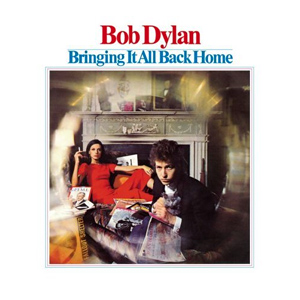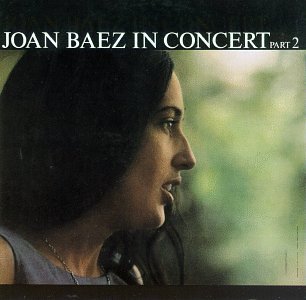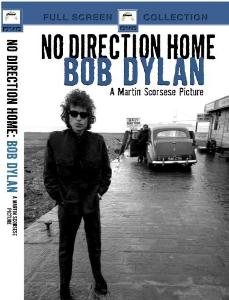
Joan Chandos Baez is an American singer, songwriter, musician, and activist. Her contemporary folk music often includes songs of protest and social justice. Baez has performed publicly for over 60 years, releasing over 30 albums. Fluent in Spanish and English, she has also recorded songs in at least six other languages.
"All My Trials" is a folk song which became popular during the social protest movements of the late 1950s and 1960s. Alternative titles it has been recorded under include "Bahamian Lullaby" and "All My Sorrows." The origins of the song are unclear, as it appears to not have been documented in any musicological or historical records until after the first commercial recording was released on Bob Gibson's 1956 debut album Offbeat Folksongs.

Bringing It All Back Home is the fifth studio album by American singer-songwriter Bob Dylan. It was released on March 22, 1965, by Columbia Records.

Another Side of Bob Dylan is the fourth studio album by American singer and songwriter Bob Dylan, released on August 8, 1964, by Columbia Records.

"It Ain't Me Babe" is a song by Bob Dylan that originally appeared on his fourth album Another Side of Bob Dylan, which was released in 1964 by Columbia Records. According to music critic Oliver Trager, this song, along with others on the album, marked a departure for Dylan as he began to explore the possibilities of language and deeper levels of the human experience. Within a year of its release, the song was picked up as a single by folk rock act the Turtles and country artist Johnny Cash.

Joan Baez is the debut album by folk singer Joan Baez. The album was recorded in the summer of 1960 and released the same year. The original release featured 13 traditional folk songs. Later reissues included three additional songs.

From Every Stage is a double live album recorded by Joan Baez on tour in the summer of 1975. The first half of the album was acoustic, with Baez accompanying herself on her guitar, while the second half features electric backup. Baez' recording of "Blowin' in the Wind" from this album was later included in the Forrest Gump soundtrack album. The song "Natalya" was dedicated to Russian poet and human rights activist Natalya Gorbanevskaya,

Baptism: A Journey Through Our Time was a 1968 album of poetry spoken and sung by Joan Baez. Composer-conductor Peter Schickele did the orchestration, as he had on Baez's previous albums Noël (1966) and Joan (1967).

Joan Baez in Concert, Part 2 was a second installment of live material, recorded during Joan Baez' concert tours of early 1963. It peaked at number 7 on the Billboard Pop Albums chart.

The Bootleg Series Vol. 5: Bob Dylan Live 1975, The Rolling Thunder Revue is a live album by Bob Dylan released by Columbia Records in 2002. The third installment in the ongoing Bob Dylan Bootleg Series on Legacy Records, it documents the Rolling Thunder Revue led by Dylan prior to the release of the album Desire. Until the release of this album, the only official live documentation of the Rolling Thunder Revue was Hard Rain, recorded during the second leg of the tour.

No Direction Home: Bob Dylan is a 2005 documentary film by Martin Scorsese that traces the life of Bob Dylan, and his impact on 20th-century American popular music and culture. The film focuses on the period between Dylan's arrival in New York in January 1961 and his "retirement" from touring following his motorcycle accident in July 1966. This period encapsulates Dylan's rise to fame as a folk singer and songwriter where he became the center of a cultural and musical upheaval, and continues through the electric controversy surrounding his move to a rock style of music.

The First Ten Years is a 1970 Joan Baez compilation album, which rounds up highlights of her first decade with the Vanguard label.
"Man of Constant Sorrow" is a traditional American folk song first published by Dick Burnett, a partially blind fiddler from Kentucky. The song was originally titled "Farewell Song" in a songbook by Burnett dated to around 1913. A version recorded by Emry Arthur in 1928 gave the song its current titles.

Robert Dylan is an American singer-songwriter. Often regarded as one of the greatest songwriters of all time, Dylan has been a major figure in popular culture during a career spanning more than 60 years. Much of his most celebrated work dates from the 1960s, when songs such as "Blowin' in the Wind" (1963) and "The Times They Are a-Changin'" (1964) became anthems for the civil rights and anti-war movements. His lyrics during this period incorporated a range of political, social, philosophical, and literary influences, defying pop music conventions and appealing to the burgeoning counterculture.
"It's All Over Now, Baby Blue" is a song written and performed by Bob Dylan and featured on his Bringing It All Back Home album, released on March 22, 1965, by Columbia Records. The song was recorded on January 15, 1965, with Dylan's acoustic guitar and harmonica and William E. Lee's bass guitar the only instrumentation. The lyrics were heavily influenced by Symbolist poetry and bid farewell to the titular "Baby Blue". There has been much speculation about the real life identity of "Baby Blue", with possibilities including Joan Baez, David Blue, Paul Clayton, Dylan's folk music audience, and even Dylan himself.
"Diamonds & Rust" is a song written, composed, and performed by Joan Baez. It was written in November 1974 and released in 1975.
"With God on Our Side" is a song by Bob Dylan, released as the third track on his 1964 album The Times They Are A-Changin'. Dylan first performed the song during his debut at The Town Hall in New York City on April 12, 1963.

Contemporary folk music refers to a wide variety of genres that emerged in the mid 20th century and afterwards which were associated with traditional folk music. Starting in the mid-20th century a new form of popular folk music evolved from traditional folk music. This process and period is called the (second) folk revival and reached a zenith in the 1960s. The most common name for this new form of music is also "folk music", but is often called "contemporary folk music" or "folk revival music" to make the distinction. The transition was somewhat centered in the US and is also called the American folk music revival. Fusion genres such as folk rock and others also evolved within this phenomenon. While contemporary folk music is a genre generally distinct from traditional folk music, it often shares the same English name, performers and venues as traditional folk music; even individual songs may be a blend of the two.
"When the Ship Comes In" is a folk music song by Bob Dylan, released on his third album, The Times They Are a-Changin', in 1964.

"Copper Kettle" is a song composed by Albert Frank Beddoe and made popular by Joan Baez. Pete Seeger's account dates the song to 1946, mentioning its probable folk origin, while in a 1962 Time readers column A. F. Beddoe says that the song was written by him in 1953 as part of the folk opera Go Lightly, Stranger. The song praises the good aspects of moonshining as told to the listener by a man whose "daddy made whiskey, and granddaddy did too". The line "We ain't paid no whiskey tax since 1792" alludes to an unpopular tax imposed in 1791 by the fledgling U.S. federal government. The levy provoked the Whiskey Rebellion and generally had a short life, barely lasting until 1803. Enjoyable lyrics and simple melody turned "Copper Kettle" into a popular folk song.














